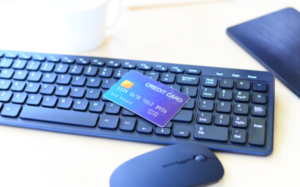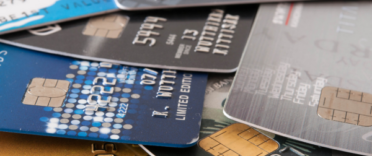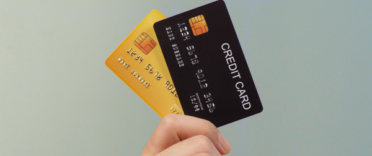
Am I eligible for a credit card?
Whether or not you are eligible for a credit card will depend in part on your credit score. Credit card providers have certain lending criteria and will use your credit history to determine whether you are a reliable borrower.
If you have a low credit score, lenders may be more hesitant about letting you borrow. If your credit score is high, you may find it much easier to get accepted for a credit card. You may also be able to access cards that offer the best interest rates or perks such as cashback and rewards.
If you’re concerned you won’t qualify for a credit card, the good news is there are a number of ways to improve your chances of getting accepted. For a start, it’s worth checking your credit score through free services such as Experian, Clearscore and Credit Karma. You can read more about checking your credit score in our article 'The best way to check your credit score for free'.
You can check what credit cards you are eligible for on our 'Check credit card eligibility: What credit cards am I eligible for?' page.
How to improve your credit score
Checking your credit score should give you an indication of how likely you are to be accepted for a credit card. You can also follow our tips on what you can do to improve your credit score. These include:
- Registering on the electoral roll
- Correcting any mistakes on your credit report
- Paying your bills on time
- Spacing out credit applications
You can read more about this in our article ‘How to improve your credit score quickly’.
How to find out which credit card is best for you
We have teamed up with Creditec* to help you compare credit card deals and check your eligibility in minutes. You will be able to find out which credit cards you are most likely to be accepted for through a soft credit check, which will not affect your credit score. You can then tailor your personalised list to sort cards by the features that matter most to you. This could mean filtering for the type of credit card you want, sorting the list by the rate of interest or highlighting the cards you are most likely to be successful in applying for. You can click here to compare deals*.
What is a credit card and who is eligible for one?
Credit cards allow you to borrow money up to a certain limit. You then pay back the amount borrowed either in full or in monthly instalments. How much you can borrow will be decided by your credit card provider. It can range from a few hundred to a few thousand pounds. If you are unable to pay back the amount borrowed in full each month, you will usually pay interest. The exception would be if you have a credit card that charges no interest for a set period of time.
If you need more information on credit card basics, read our article 'What is a credit card?'.
There are several different types of credit card and they all suit different uses. You will need to decide what you want your card for before choosing one. For example, a credit card can help you to spread the cost of a large purchase, clear debt, earn rewards, or improve your credit rating. To find out more, read our article ‘Which credit card is best for me?’.
Can I get a credit card with no credit history?
If you have no credit history – for example, because you haven’t borrowed through a credit card or other form of credit in the past – it does not automatically mean you will be rejected for a credit card. However, it can make it more challenging. Because you have no credit history, lenders won’t be able to assess whether you have repaid your debt on time in the past. As a result, they may be more reluctant to lend to you.
The good news is that there are credit cards designed to help those with little or no credit history. These are known as credit builder credit cards. Providing you use your card sensibly, they can help you to improve your credit score and get accepted for more competitive credit cards in the future.
The downside of credit builder credit cards is they typically have low credit limits. However, if you make your repayments on time each month and don’t exceed your limit, your credit limit may increase after a while.
In addition, credit builder credit cards usually have high rates of interest. This means you will need to pay off your balance in full each month to avoid extra charges. To find out more, read ‘Compare the best credit cards if you have bad credit’.
I’m a student, can I get a credit card?
Students typically have a very limited credit history, but student credit cards are specifically designed for those in further education who won’t qualify for mainstream cards.
Similar to credit builder cards, student credit cards often have low credit limits, but the advantage is this can prevent you from building up too much debt. They often have high interest rates too so it’s best to pay off your balance each month in full if you can.
I’m 18, can I get a credit card?
You’ll usually need to be at least 18 years old to apply for a credit card, so providing you are eligible, you should get accepted. Keep in mind that some credit cards have a higher age limit.
I’m unemployed, can I get a credit card?
It’s not impossible to get a credit card if you are unemployed, but it can make it much harder (unless you’re a student), particularly if you have no income at all. This is because lenders will want to see evidence that you will be able to pay back what you owe.
A credit builder credit card can be a good place to start as some have no minimum income requirements, but be aware that a lender will still assess whether you will be able to afford your repayments.
It’s important to think carefully before applying for a credit card if you have no income and never borrow more than you know you can afford to pay back. Credit builder cards often charge high rates of interest and if you have no way of being able to repay the amount borrowed, your debt can quickly start to spiral out of control. What’s more, if you are unable to keep up with your repayments, this can have a negative impact on your credit rating.
I’m on benefits, can I get a credit card?
Benefit payments may be counted as income by some lenders, which means you may be more likely to be accepted for a credit card than if you have no income at all. Again, your best bet is to apply for a credit builder credit card.
Can I get a credit card online?
Yes, you can compare the best credit cards online or via our regularly updated comparison tables listed below. You can usually apply for your chosen credit card through the provider’s website directly from the link in our comparison tables.
- Compare the best 0% purchase credit cards
- Compare the best 0% balance transfer credit cards
- Compare the best cashback and reward credit cards
- Compare the best first-time credit cards
- Compare the best credit cards if you have a bad credit history
- Compare the best travel credit cards
All you need to do is fill in the form and you may then be sent paperwork to sign and send back. Many providers offer instant approval if you apply online.
Alternatively, you could choose to apply by post, in branch (if the provider has a local bank branch), or by phone.
How to get a credit card
To apply for a credit card, you will need to provide your name and address, date of birth, your nationality, your employment status and your salary or income.
Your identification will be checked through your credit record and the electoral roll, although you may need to send in copies of documents such as your driving licence, passport, a bank statement or utility bill, as well.
If you’ve applied online, you will often find out immediately whether you have been accepted. If not, you should hear within 5 to 10 days. Once accepted, your new credit card should arrive within 10 working days, followed by your PIN.
Find out more by reading our guide 'How to apply for a credit card'.
What happens if I can’t get a credit card?
If you are not accepted for a credit card, it’s best not to apply for another one immediately. Each time you apply for credit, a ‘footprint’ is left on your credit report and if you make several applications in a short amount of time, this can suggest to lenders you are desperate for credit.
Instead, it’s worth contacting the lender to see whether it can tell you why your application was declined. Lenders may not be able to tell you the exact cause but they can usually give you an indication. It’s then worth checking your credit report again and looking at whether there are any other steps you can take to help improve your credit score.
It’s best to wait three to six months before applying again. You might also want to consider other ways of borrowing, perhaps through an overdraft on your current account as, providing you don’t go over your limit, this can also help you to improve your credit score.
Read our guide ‘Should I get a credit card?’ to learn more.
If a link has an * beside it this means that it is an affiliated link. If you go via the link Money to the Masses may receive a small fee which helps keep Money to the Masses free to use. But as you can clearly see this has in no way influenced this independent and balanced review of the product.







